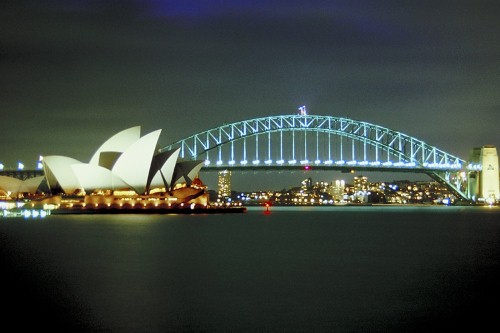NSW deputy premier says new migration visa plans will build a "Big Sydney"
- Details
- Created on Thursday, 22 March 2012 16:49
- Written by Editorial staff

In a move that could see the state accepting around 7,200 migrants a year, the deputy premier of New South Wales, Andrew Stoner, has announced new plans to build a "big Sydney".
Speaking to the Sydney Morning Herald on March 21, the minister for trade and investment explained that the move had been made in recognition of the valuable contribution that skilled international workers and students made to economic development.
Mr Stoner asserted: "To boost economic activity in NSW, we would like the state's allocation of state- and territory-sponsored skilled migrants increased to around 30 per cent, in line with our share of the economy and population.
"NSW is already the preferred Australian destination for the majority of long-stay business migrants, skilled migrants and international students, but there's more we must do to realise the full economic and cultural benefits."
The minister went on to tell the Fairfax publication that the state government was entering into negotiations with a range of stakeholders to determine how best to attract international investment and skilled individuals from overseas.
Entities involved in the developments include other state governments and federal bodies including the Department of Immigration and Citizenship (DIAC).
Mr Stoner said that he would be asking for the residency rules attached to state sponsored visas - the 165 subclass - to be relaxed, allowing investors to spend less time in the country.
The minister was also looking to have the definition of 'investment' broadened to include other avenues of wealth generation, such as state government bonds which can be used to help fund infrastructure development projects.
Mr Stoner stated: ''Business migrants, in particular, bring with them experience, international connections, entrepreneurial skills and capital to establish new businesses.''
Alternatively, Mr Stoner suggested that a different migration visa pathway be developed that was aimed strictly at international business people looking to invest directly in the state.
On top of this, there may be new developments introduced to student immigration visas, with a streamlined application process, a wider range of subjects covered and added support for applicants who complete their studies and want to work in Australia after they graduate.
While the proposed changes are still a long way from being implemented, the shift in focus could result in an increase in economic activity across the state - which in turn could serve to attract even more international investment.
News Archive
- 2014
- 2013
- December (21)
- November (29)
- October (21)
- September (20)
- August (22)
- July (21)
- June (20)
- May (23)
- April (22)
- March (27)
- February (19)
- January (20)
- 2012
- December (14)
- November (17)
- October (20)
- September (16)
- August (23)
- July (21)
- June (18)
- May (22)
- April (18)
- March (20)
- February (18)
- January (19)
- 2011






